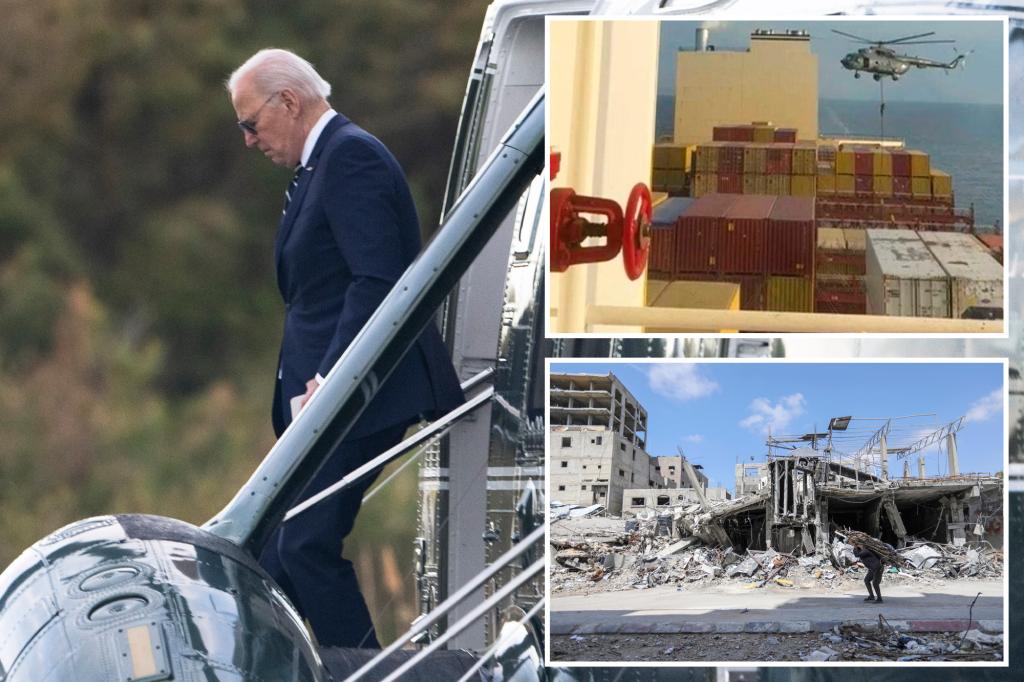President Joe Biden has returned to the White House from a beach weekend in Rehoboth Beach, Del., to consult with his national security team about the escalating tensions in the Middle East. Both Biden and Vice President Kamala Harris had come under criticism for leaving Washington, D.C., while Israel and U.S. forces braced for a possible attack by Iran. Tehran is expected to launch a direct attack on Israel, following the assassination of a top Iranian Revolutionary Guard general by Israel in Damascus. Biden had warned against such a move during a press briefing on Friday.
As the situation escalates in the Middle East, the United States has moved two guided-missile destroyers closer to Israel to intercept drones and incoming missiles in anticipation of an attack by Iran. The U.S. is also prepared to assist Israel in intercepting any missiles launched by Iran. The threats from Iran have raised concerns about a wider regional conflict that could have severe consequences for the stability of the region. Biden’s decision to return to the White House underscores the seriousness of the situation and the need for immediate action to address the growing tensions.
While Biden was enjoying a beach getaway in Delaware, Vice President Harris was in Tucson, Arizona, for a campaign appearance. The decision of both leaders to leave Washington, D.C., at a time of heightened tensions between Israel and Iran drew criticism and raised questions about their commitment to addressing the situation. The mounting pressure on the Biden administration to respond effectively to the threats from Iran highlights the challenges facing the U.S. in maintaining stability in the Middle East and protecting its allies in the region.
The possibility of a direct attack by Iran on Israel has created a sense of urgency among U.S. officials and military forces to prepare for any potential conflict in the Middle East. The deployment of guided-missile destroyers and other military assets closer to Israel is a strategic move to deter Iran from carrying out its threats and to ensure the safety of U.S. forces and allies in the region. The Biden administration is focused on preventing a wider regional conflict that could have devastating consequences for the stability and security of the Middle East.
Biden’s decision to return to the White House to consult with his national security team highlights the gravity of the situation in the Middle East and the need for immediate action to address the threats from Iran. The heightened tensions between Israel and Iran have raised concerns about the potential for a wider regional conflict that could have far-reaching implications for the stability of the Middle East. The U.S. is committed to working with its allies in the region to ensure the safety and security of all parties involved and to prevent further escalation of the conflict.
As the Biden administration navigates the complex and volatile situation in the Middle East, the U.S. remains committed to working with its allies to address the threats from Iran and to maintain stability in the region. The deployment of military assets closer to Israel and the readiness to assist in intercepting missiles from Iran demonstrate the U.S. commitment to protecting its allies and ensuring regional security. The Biden administration will continue to monitor the situation closely and take appropriate action to address the evolving threats in the Middle East while working towards a peaceful resolution to the conflict.


